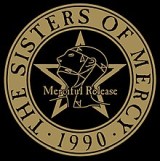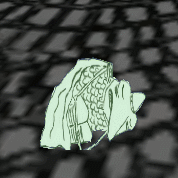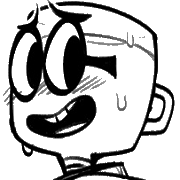|
I'm dumb and drunk and was listening to the latest Rev Left Radio where two people who know more about revolutionary politics than I could ever hope to know discussed Lenin telling Bukharin that he didn't understand dialectics. It's always seemed kind of obvious to me, but I voted for Hillary, so I'm sure you can see that I'm missing something. Here's what I think I know. In the beginning, there was a dude named Hegel. He was apparently an enlightenment philosopher who posited a "great man" theory of history. Something something great men have ideas something something dialectic. Then Marx and/or Engels came around and were like no dude actually something something historical materialism and something something class struggle and somehow this "inverted" the dialectic. At first I thought this basically meant cause and effect, or perhaps Newton's third law, "for every action, there is an equal and opposite reaction." Later I was exposed to the idea of thesis, antithesis, synthesis and the notion of Greek philosophers engaged in a good faith attempt to understand issue. Lately I've been thinking it means to consider the possible reactionary response to any potential revolutionary action. Also, it seems kind of loosely related to the quantum mechanical notion that observation of a system invariably affects said system. Then there's the idea of contradiction. The dialectic also seems to intimately related to the resolution of contradictions. I often hear it invoked in reference to "the contradictions of capitalism" (e.g. the contradictory goals of the proletariat and the bourgeoisie). The problem is, I can't tell what the dialectic is supposed to be. Is it another word for contradiction? Is it a theory of motion a la Newtonian gravity? Is it an abstract concept that we cannot resolve e.g. infinity? Is it a classification? Something else? I swear I've Google'd this but poo poo's either way too philosophical for me to follow, or too basic for me to learn from. Please explain this to me as if I was a 5 year old. I am too dumb for quotes from people who died 150+ years ago.
|
|
|
|

|
| # ? Apr 28, 2024 11:18 |
|
I am also drunk and dumb and dont know what dialectics are. Have a garrison 
|
|
|
|
the only thing I know is that if I drop the D-word in conversation I win the high ground “why are we so poor and the rent too drat high?” “let’s start with the materialist dialectic...” edit: drunk on a Sunday night
|
|
|
|
wilford brimely was one of them
|
|
|
|
i dont acutally know what it means but context in how people use it and in the occasional book that uses it is that it just means 'an objective look at the world'. so material dialectic is specifically an objective look at the world's material conditions. i don't know why there's a fancy word for it. it's like praxis, which just means practice, except you sound smarter
|
|
|
|
god bless
|
|
|
|
here prof wolff explaining it https://www.youtube.com/watch?v=bjsmn6ZLvHo
|
|
|
|
drunk, dumb, but do you hate OP
|
|
|
|
it was a book written by L. Ron Hubbard
|
|
|
|
Eyyyyyyyy were talking about the means of production heeeeyaaaaa
|
|
|
|
I've been struggling with wrapping my head around this too this is what I think it's about so far somebody tell me if it's wrong: - Everything is changing all the time - Things have contradictions within them so they contain their own negation, Socialism comes out of the contradictions within Capitalism for example - Conflict arises out of the contradictions and make a new thing, which has its own contradictions and so forth One dialectic could be that people shape their conditions and people's conditions shape them for example. Or in the classic example Socrates and somebody else having a civilized argument and pointing out the problems in each other's arguments until they hopefully arrive at some big t Truth. Grevling has issued a correction as of 11:44 on Apr 8, 2019 |
|
|
|
Kobayashi posted:Here's what I think I know. In the beginning, there was a dude named Hegel. He was apparently an enlightenment philosopher who posited a "great man" theory of history. Something something great men have ideas something something dialectic. Then Marx and/or Engels came around and were like no dude actually something something historical materialism and something something class struggle and somehow this "inverted" the dialectic. you just described the "inversion of the dialectic", you already understand it, you just don't know how to put it into college nerd words hegel thought that ideas and our debating them (internally as individuals and externally via the process of history) was the only thing that really mattered, and what determined "reality" marx literally inverted that causal relationship, stating that real, material things and resources are what matters and all of our abstract ideas and philosophical debates and notions of what constitutes perfect and imperfect forms are things we make up to rationalize, cope with, justify, etc the conflict between human beings for resources
|
|
|
|
SpaceGoku posted:wilford brimely was one of them til Wilford brimley is still alive
|
|
|
|
 quote:The most ambitious accounts of history in the 19th century were Hegel’s and Marx’s, which described the structure in terms of “dialectics,” or opposites that were reconciled at a higher level in the next phase: conflicting cultures or classes or spirits of the age that were merged and transcended at the dawn of the next period, which in turn generated a new conflict or tension.
|
|
|
|
No. 1 Apartheid Fan posted:you just described the "inversion of the dialectic", you already understand it, you just don't know how to put it into college nerd words drat, that helps a lot. This thread should be stickied.
|
|
|
|
applying it to more current events, i'd look at something like the cold war. the U.S. "won" the cold war and 20th century state planning was defeated, but the capitalism that emerged from that conflict is different than the kind that entered it. it's almost like a kind of "planned capitalism" nowadays, operating on an enormous scales and with predictable orders between the same buyers and sellers, with large corporations knowing what people will buy before they even buy it, with just-in-time delivery made possible by algorithms that were originally developed to guide ICBMs over the north pole. now they're guiding amazon's drone motherships. so there's a new dialectical conflict emerging out of that. this guy should've been happy the U.S. came out on top, but he isn't: https://www.youtube.com/watch?v=nj12LaDvwKA i've got more thoughts on this as babby tries to apply dialectical materialism to today.
|
|
|
|
it’s the only way to break bricks, comrade
|
|
|
|
dialectical analysis time! i think a lot of people here see that the madness of U.S. politics is because both political parties are bought by big business and that serves to obscure class divisions, but they have a hard time putting it into words. i would start by looking at the parties as not just being bought by big business, but by fractions of big business rooted in different economic sectors that are co-dependent (they need each other) but have a different interests that conflict. the modern capitalist economy is a value chain in which resources are pulled out of the ground, turned into commodities (manufacturing), and then bought and sold on the marketplace and then serviced after they are sold. this goes from agriculture to mining, oil and gas drilling, up to manufacturing and logistics to move the stuff from A to Z, to the large corporate office towers to manage and provide the finance to everything including the advertising and the "human resources" involved to make production more efficient. as in material production, so as in intellectual production as well as with schools and universities, and research and development for new products and services -- all of this creates new wants and desires, and as products move up the value chain, they become more valuable. the democrats used to be the party of organized labor, but have over the course of decades moved away from that and have become concentrated in cities and represented by service-sector industries including education, "creative class" types, technology, government workers, media, entertainment, technology in silicon valley, etc. the republicans' base of support is in extractive industries: coal and steel, oil and gas, logging, large-scale ranching interests (here in texas) and rural landowners, real estate, and increasingly manufacturing. there's a lot of overlap in some sectors (finance). but one difference is that services often operate on global scales. primary sector industries are often rooted in particular places. oil can only come out of the ground in specific places. these industries can also face greater risks on the global marketplace. now there's also a distinction in marxism between the "base" and "superstructure." the material base shapes and is maintained by the cultural, social and political superstructure (but the base is dominant).  this is the main reason why the succdems prefer technocratic solutions which derive from their respective material base. not redistribution, but "innovation" in the delivery of services. healthcare is still a commodity, but you are required to buy health insurance. instead of a job guarantee, wage improvements, or strengthening of organized labor in terms of collective bargaining, you have "job training." instead of univeral higher education, your student loans are deferred if you create a tech startup. schools are also privatized and turned into "charter schools." https://www.youtube.com/watch?v=-rMVNC5l4IM regrettably, one of the outcomes of this structure is people resorting to the subjective (social) prejudices that arise from their respective material bases to explain what has gone wrong. they look for scapegoats as "neoliberal shill, coastal elitist, technocrat dandy" bob chipman does here, locating the problem in people who are not "innovative" like him: https://twitter.com/the_moviebob/status/1113673760790523904 he senses that there is a division in society, but he has a whiggish and linear view of history -- we're always marching toward progress. the "deplorables" in the countryside are just holding it back. but he doesn't see how the people who are "creating" new tastes in the cities are dependent on the resources and manufacturing in trump country. this is because he has no material analysis, and is basically just another bigot. the same resorting to prejudices also goes for the right, with its focus on exclusion of those "not round 'round here" such as immigrants and perceived threats to the patriarchal and ethnic social order (gender also plays an important role here). americans working in "rooted" industries tied to particular places resort to scapegoating people who are different. immigrants should be deported or their subordination intensified. gender roles should be reinforced, not weakened by this ocean of threats ranging from "soyboys" to trans people. instead of expanding "access to" resources through "innovation," they will literally wall off "access to" resources. like their succdem counterparts, redistribution is never discussed. racial / cultural nationalism binds them (subjectively) to the owners of large industries that dominate rural and exurban america. https://www.youtube.com/watch?v=c4RKH3DRmr0 but without the people in the cities adding value to all this stuff, their industries would stagnate and decline. this is the contradiction. i should note that this is very simplified and i'm also still trying to understand it. i'd note that a lot of working class people simply do not vote *ever* and that voters are disproportionately comprised of the managerial sectors of these industries. it's not necessarily the worker but the assistant manager of the propane company in amarillo, texas who loves trump. it's the HR manager at the tech office who will donate to beto o'rourke. that's my impression, although i think a lot of working-class people are basically aligning behind these subjective interests / identities and not their objective class interests because they have no class consciousness, because there is a lot of money and powerful interests -- including the police -- working to keep it that way in a bourgeois republic "where humbug reigns supreme" as marx put it. BrutalistMcDonalds has issued a correction as of 14:17 on Apr 8, 2019 |
|
|
|
live free or dialectic
|
|
|
|
It's what l Ron Hubbard invented op
|
|
|
|
someone else should do this vis-a-vis brexit because i'm not british and haven't followed it closely enough, but the contradictions trapping theresa may are deliciously dialectical. supremacy of the subjective interests of particular social formations (and privileging the "nation") over the objective interests of the market which likewise destroys the united kingdom as a country by fragmenting it internally... a renewed drive for scottish independence and a potential ignition of hostilities in northern ireland... this is an analytical snack
|
|
|
|
It makes you pee, op
|
|
|
|
What the gently caress is the dialectic??? Why the dialectic's that special feeling you get when you hold hands with your best gal! It's cheering real loud for the home team! It's catching the perfect wave! Well actually it's a kind of
|
|
|
|
what if we took the socratic method and applied it to all social relationships
|
|
|
|
Mooey Cow posted:What the gently caress is the dialectic??? this thread is good, thanks to everyone seriousposting because dialectics isboth a harder concept to understand but also bedrock important to activism and organizing and understanding
|
|
|
|
a dialectics is when you have a system which contains at least two subsystems which co-determine each other. it’s a lot less confusing than its typical usage suggests.
|
|
|
|
Karl Barks posted:what if we took the socratic method and applied it to all social relationships let's take that thing insufferable people do and use it all the time
|
|
|
|
sticky the thread, immediately BrutalistMcDonalds continues to be the poster of our times
|
|
|
|
love is a dialectic imo
|
|
|
|
i figured this out after four years at university: its a way of analysing things looking at how they relate to other things. like the way marxism analyses capitalism through the interplay between capital and labour. nobody own me if this is wrong
|
|
|
|
Hodgepodge posted:live free or dialectic You either dialectic, or you live long enough to see yourself become the antithesis.
|
|
|
|
Farm Frenzy posted:i figured this out after four years at university: its a way of analysing things looking at how they relate to other things. like the way marxism analyses capitalism through the interplay between capital and labour. nobody own me if this is wrong it's sorta looking at everything from an ecosystemic perspective appropriate considering we're cooking the ol planet
|
|
|
|
SpaceGoku posted:wilford brimely was one of them dialeectus
|
|
|
|
Feranon posted:love is a dialectic imo The end state of the love dialectic is being comfortable enough with your partner to poo poo with bathroom door open
|
|
|
|
Victory Position posted:sticky the thread, immediately
|
|
|
|
dr. rummel = thesis mr. snuff = antithesis rummelsnuff = synthesis https://twitter.com/Rummelsnuff/status/946218002852261888
|
|
|
|

|
|
|
|
This is an intensely useful post Victory Position posted:sticky the thread, immediately
|
|
|
|
Mooey Cow posted:What the gently caress is the dialectic??? This was the single most enlightening post in the thread so far!
|
|
|
|

|
| # ? Apr 28, 2024 11:18 |
|
A dialectic is when you slam two terrible ideas together to create something even Worse
|
|
|






























 - hi
- hi








